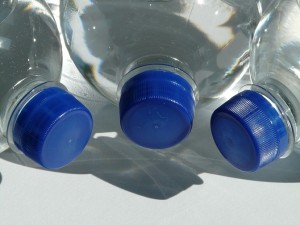 The term greenwashing was coined by environmentalist Jay Westerveld way back in 1986 when the majority of consumers got their news from radio, television, and print media which was basically funded by highly-priced, slickly-produced commercials and print ads from huge corporations.
The term greenwashing was coined by environmentalist Jay Westerveld way back in 1986 when the majority of consumers got their news from radio, television, and print media which was basically funded by highly-priced, slickly-produced commercials and print ads from huge corporations.
The fact that massive corporations had seemingly unlimited advertising combined with limited public access to information allowed these corporations to present themselves as caring environmental stewards, which was in many cases the exact opposite of what they were.
While Westerveld may have coined the phrase, greenwashing itself dates back to the 1960s when America’s Westinghouse was pioneering nuclear power and fought back against the anti-nuclear movement’s questions about its safety and environmental impact with a series of ads proclaiming the cleanliness and safety of nuclear power plants.
Jay Westerveld’s inspiration however, came not from nuclear plants but from towels – a resort in Fiji left a note requesting guests to pick up their towels to help the reefs and reduce ecological damage. Westerveld was struck at the irony of the note left by a resort that was constantly expanding, with little or no regard for the beautiful coral reefs. He wrote an essay about on multiculturalism three years later, which led to the birth of the term greenwashing.
Greenwashing has been perpetrated by various massive corporations over the years, each one claiming that their product is environmentally-friendly, and that they put millions into environmental projects annually – all the while cutting down forests, destabilising salmon habitats, polluting the earth, the oceans, rivers and lakes, not to mention the air.
Consumers started wising up to sustainability concerns during the early 1990s, and the advent of the internet only fuelled this interest as individuals became more aware of the greenwashing, environmentally aware and more prepared to pay more for environmentally sustainable products.
This greenwashing extends to the bottled water industry, where companies advertise their bottled water as being healthy, as being good for the planet, and that everything they do is environmentally sustainable, which is a massive lie. Nestle, in particular is guilty of this – it claims that its Eco-Shape bottle is more efficient, that its Resource recycled plastic bottle is more environmentally responsible and that its use of plant-based plastics is less damaging to the planet.
The truth is that only about 31% of plastic bottles end up getting recycled, with the rest ending up in landfills or the oceans. Nestle’s Arrowhead water claims that Mother Nature is our muse yet they are accessing water from springs in California, Arizona and Oregon – all of which are experiencing devastating droughts.
If you want to be really eco and environmentally conscious where your drinking water is concerned, it is far better to invest in a mains water cooler that filters your tap water. Mains water coolers provide crystal clear, icy, toxin-free drinking water virtually non-stop.
Get a watercooler and water cooler london from Living-Water.





